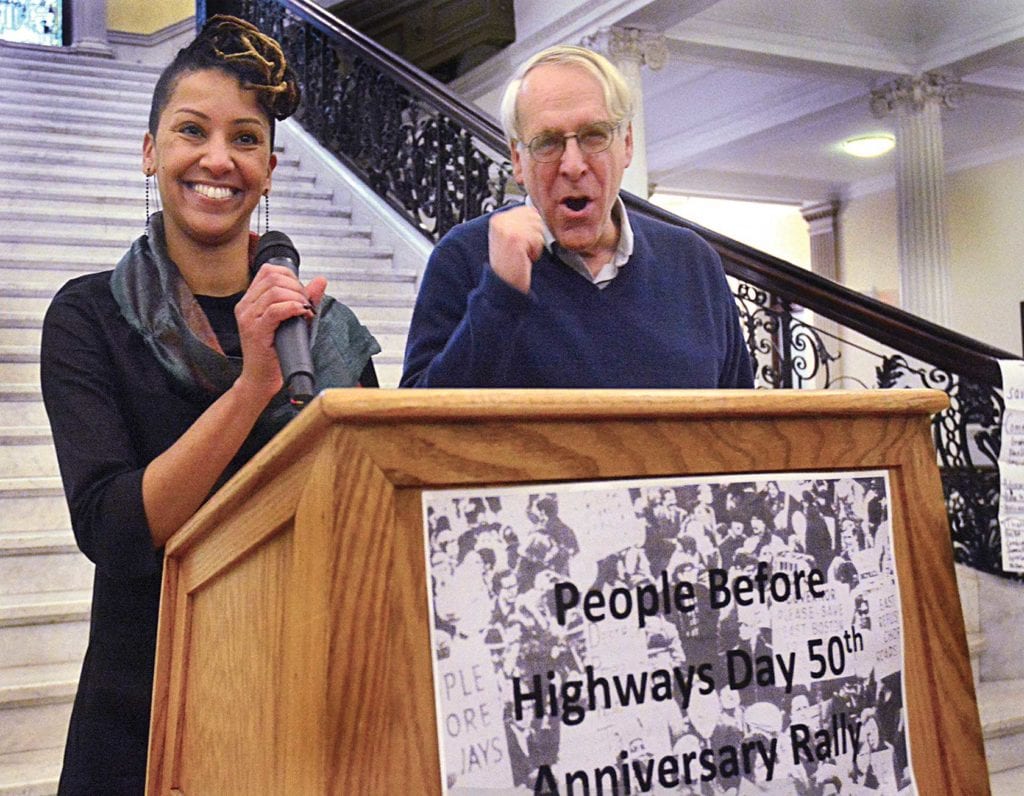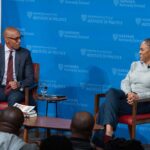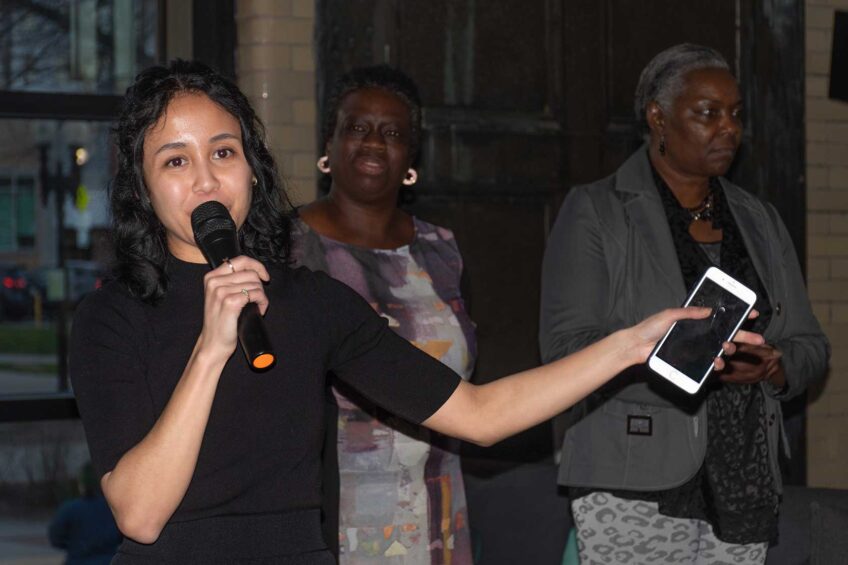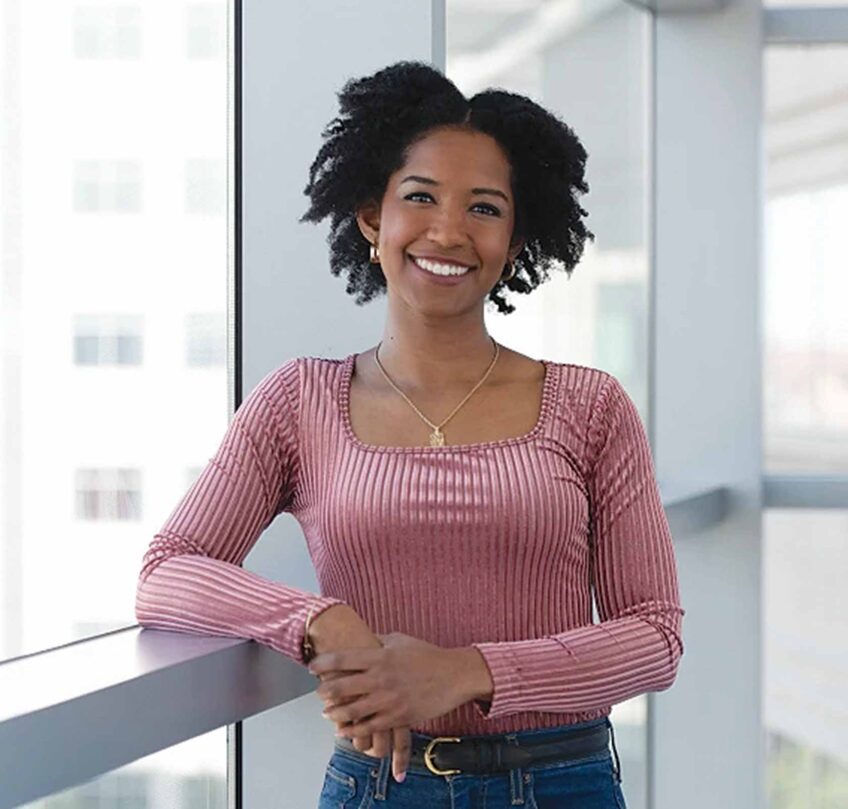Activists gather at State House to mark 50th anniversary of Southwest Corridor protests
Demonstrations stopped planned extension of I 95 through Boston

Politicians, activists and MIT students gathered at the State House Friday to celebrate the anniversary of a historic protest that brought 2,000 people to the same place 50 years earlier and prevented a 10-lane highway from slicing through Boston.
The People Before Highways protest on Jan. 25, 1969 successfully ended the extension of highway I-95 that would have drastically changed Boston and displaced thousands of residents and businesses, cutting through neighborhoods from Roxbury to Cambridge.
The activists’ work resulted in the construction of Southwest Corridor Park and the relocation of the Orange Line there from Washington Street, making Massachusetts the first state the federal government allowed to use highway funds to build mass transit.
Karilyn Crockett, MIT professor and author of “People Before Highways,” the 2018 book that chronicles the movement, organized the event with her students and spoke about looking back while looking forward to future activism.
“Today we gather to remember the work that continues, because we are not finished yet,” said Crockett. “This is not a small crowd or moment. Everything today is big, big, big.”
After gathering on the front steps on the State House, the 100 or so people in attendance went inside the building, where they listened to Crockett and a handful of activists who were present at the first protest.
Tunney Lee, an activist from Cambridge, spoke about his role in halting the destruction of Boston homes that began in 1966 to make way for the highway.
“We got together because we were appalled at the damage that had already been done,” said Lee. “Many houses had already been taken by the Turnpike and yet another highway was in the works.”
Lee then told the story of discovering a line in a city report that read, as a result of the displacement caused by the new highway, “Lower income families may experience some hardships,” and a voice in the crowd called “Sound familiar?” eliciting applause from the audience.
Former City Councilor Chuck Turner, who was present at the 1969 protest, then spoke. Turner, too, drew a parallel to issues faced by Boston residents today.
“We live in a challenging time. We know that there are forces that want to drive us out,” said Turner. “When you think about the time we’re in now, the forces, it’s an even more difficult time than in the ’60s. But we need to see what the transportation struggle achieved and do it again because we can’t afford to lose.”
Lessons learned
Other Boston politicians attended in support of past and future urban activism. State Reps. Russell Holmes, Liz Malia and Liz Miranda spoke at the event.
Malia spoke about learning from the success of the past activist’s strategies.
“The planners learned how to make a policy that listened. All the communities had a chance to reflect, think, and talk together,” said Malia. “Because of what happened 50 years ago, we have communities that are not wiped out. Let’s all at least continue the history we see today.”
Although not present at Friday’s rally, notable figures such as former governors Michael Dukakis and the late Francis W. Sargent, along with former state Reps. Mel King and Byron Rushing, were recognized for their help in the movement.
After the speeches, a small group of the activists placed a wreath in front of Gov. Sargent’s image inside the State House. “Imagine there’s drumming,” joked Crockett, “Which you are not allowed to do inside the State House.”
Holmes, in his speech, drew attention to the Southwest Corridor Park, which some Boston activists and residents believe is in need of more attention from the city’s Department of Conservation and Recreation due present-day understaffing and park deterioration.
“We’ve done an awful lot of work on the JP side,” said Holmes. “But we have a lot of work to do on the Roxbury side.”






